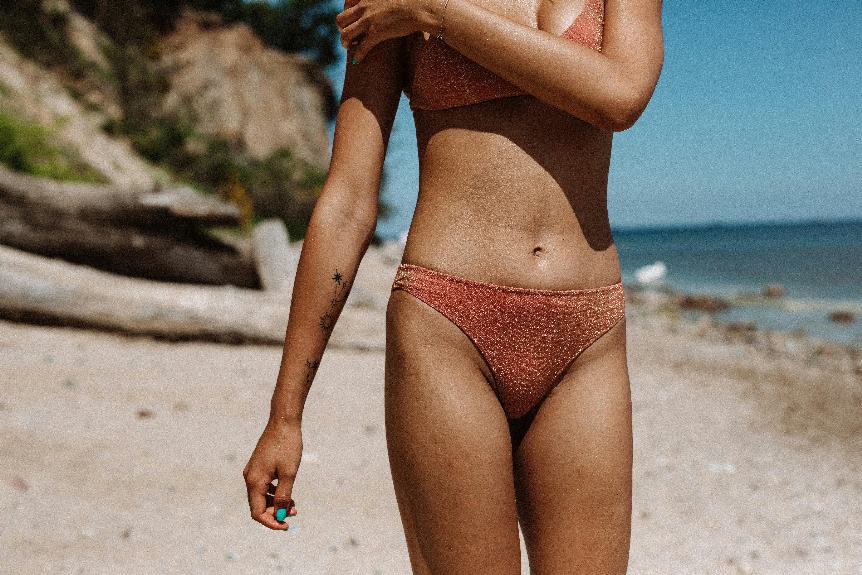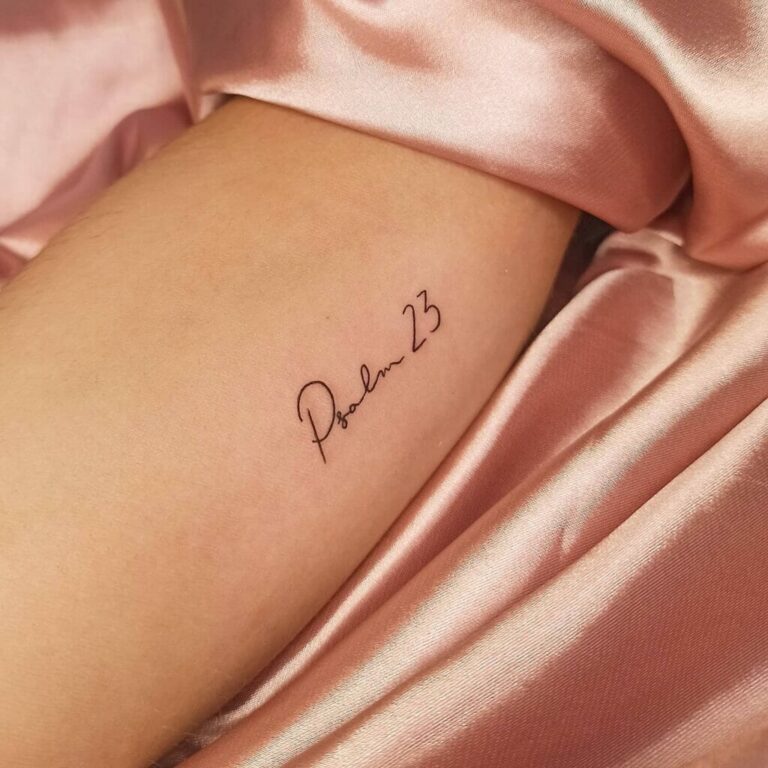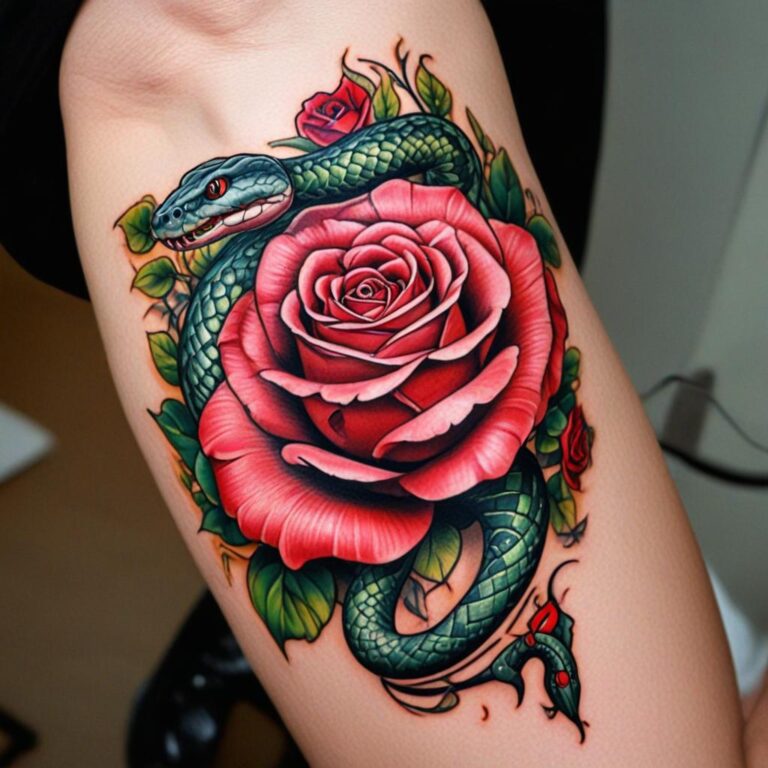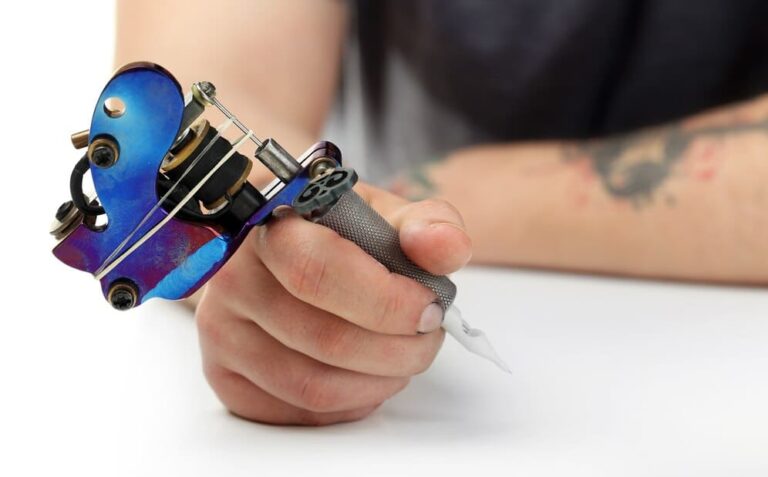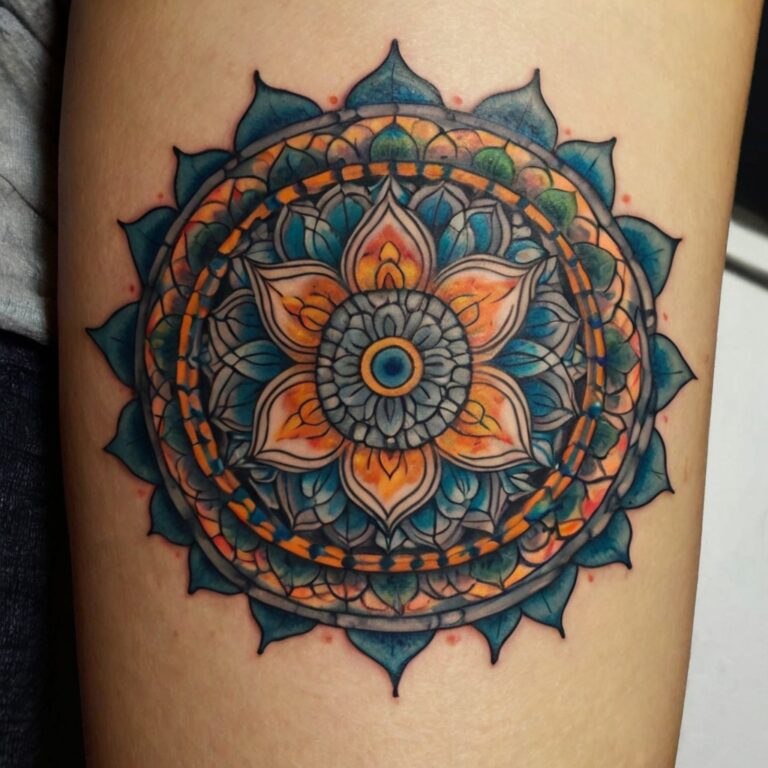Tattoo Tanning: How Long Should You Wait to Tan After Getting Inked?
You've finally gotten the tattoo you've been wanting, and now you're itching to show it off in the sun. But before you head out to soak up some rays, it's important to take into account the potential risks.
Direct sunlight can wreak havoc on your new ink, causing sun damage, fading, and even infection. So, how long do you need to wait before it's safe to tan? The answer isn't a simple one, as it depends on various factors, including your skin type and the size of your tattoo.
Let's delve into the details to make sure your tattoo looks its best for years to come.
Post-Tattoo Aftercare Essentials
You'll need to prioritize proper wound care to guarantee your tattoo heals correctly and looks its best, which means following a strict aftercare regimen. This involves keeping your tattoo clean, moisturized, and protected from the sun, bacteria, and other contaminants.
Wash your tattoo with soap and warm water 2-3 times a day, gently patting it dry with a clean towel. Apply a thin layer of fragrance-free lotion or aftercare balm to keep it hydrated and promote healing.
Avoid submerging your tattoo in water, such as taking a bath, swimming, or using a hot tub, for at least 2 weeks. Also, refrain from picking at scabs or scratching your tattoo, as this can lead to infection and scarring. Wear loose, comfortable clothing to reduce irritation and friction.
Keep your tattoo out of direct sunlight and avoid tanning beds until it's fully healed. By following these essential aftercare tips, you'll be well on your way to a healthy, vibrant tattoo that will last a lifetime.
Understanding Sun Damage Risks
As you plan to show off your new tattoo, you'll need to bear in mind the risks of sun exposure. UV rays can wreak havoc on your skin, causing damage that goes beyond just a sunburn.
You're also increasing your risk of skin cancer, which is a serious concern that needs to be factored in.
UV Ray Exposure
When you expose your newly inked skin to UV rays, the sun's intense energy can cause your tattoo to fade, become discolored, or even develop sunburn-like symptoms. This is because UV rays penetrate deep into your skin, breaking down the pigment and causing it to degrade. As a result, your tattoo may lose its vibrancy, and the colors may start to bleed or run together.
UV rays can also cause your skin to become inflamed, leading to redness, swelling, and itching around the tattoo area. In severe cases, UV exposure can even lead to sunburn, which can further compromise your tattoo's appearance and prolong the healing process.
It's important to remember that your skin is still sensitive and vulnerable after getting a tattoo, and excessive UV exposure can have long-lasting, damaging effects.
To avoid these risks, it's vital to limit your exposure to UV rays, especially during the initial healing phase. This means avoiding direct sunlight, using broad-spectrum sunscreen with at least SPF 30, and wearing protective clothing when going outside.
Skin Cancer Risks
How much do you know about the skin cancer risks associated with UV exposure, and are you aware that your newly inked skin is even more susceptible to damage? As you're excited to show off your fresh tattoo, it's vital to understand the risks involved.
UV radiation from the sun or tanning beds can cause genetic mutations in skin cells, leading to skin cancer. The American Academy of Dermatology states that UV radiation is a proven cause of skin cancer, and the risk increases with each exposure.
When you get a tattoo, your skin is already compromised. The tattooing process causes micro-injuries, making your skin more vulnerable to UV damage. This means that tanning after getting a tattoo can further increase your risk of skin cancer.
It's important to prioritize sun protection to safeguard your skin and your new tattoo. Use broad-spectrum sunscreen with at least SPF 30, wear protective clothing, and seek shade when the sun is strongest. By taking these precautions, you can enjoy your tattoo while minimizing the risks associated with UV exposure.
When to Expose Your Tattoo
Understanding the risks of sun damage is crucial. It's important to know when to expose your new tattoo to the sun.
You'll need to wait until your tattoo is fully healed before taking it out into the sun. Immediate sun exposure can cause serious damage. By waiting, you'll minimize the risks of direct sunlight ruining your new ink.
Immediate Sun Exposure
You'll need to wait at least two weeks before exposing your new tattoo to direct sunlight, as premature sun exposure can lead to fading, blistering, or even infection. Your tattoo is basically an open wound, and direct sunlight can cause damage to the sensitive skin.
Here are some reasons why immediate sun exposure is a bad idea:
- Increased risk of infection: Direct sunlight can introduce bacteria into the tattoo, leading to infection and potentially serious complications.
- Premature fading: UV rays can cause the ink to break down, resulting in a faded or uneven appearance.
- Skin irritation: Sun exposure can cause skin irritation, leading to redness, swelling, and discomfort.
- Delayed healing: Sunlight can slow down the healing process, prolonging the time it takes for your tattoo to fully recover.
Direct Sunlight Risks
Exposure to direct sunlight will cause your tattoos to fade over time, regardless of color. The UV rays in sunlight break down the ink, leading to a loss of vibrancy and clarity. This is especially true for colors like red, orange, and yellow, which are more prone to fading.
If you expose your tattoo to direct sunlight too soon, you risk causing damage to the skin and ink, leading to uneven healing and scarring.
You'll need to take extra precautions to protect your tattoo from direct sunlight. When you do decide to venture out into the sun, make sure to cover your tattoo with clothing or apply a broad-spectrum sunscreen with at least SPF 30. You can also use a tattoo-specific sunscreen that's designed to protect the ink and skin.
Wait for Healing
Take your tattoo artist's advice to heart, as they're best equipped to guide you through the healing process and the timing of safe sun exposure. They'll likely recommend waiting until your tattoo is fully healed before exposing it to direct sunlight. This can take anywhere from a few weeks to a few months, depending on the size and complexity of your tattoo.
Here are some signs your tattoo is ready for sun exposure:
- Scabbing has stopped: Your tattoo should no longer be scabbing or oozing fluids.
- Redness has subsided: The redness and inflammation around your tattoo should have decreased significantly reduced.
- Skin feels normal: The skin around your tattoo should feel smooth and normal to the touch.
- Peeling has finished: Any peeling or flaking of the skin has stopped.
Tattoo Size and Location Factors
Your tattoo size and location depend on several personal and creative considerations, including your body's natural contours, personal pain tolerance, and the design complexity you envision. These factors not only impact the tattooing process but also affect how you can tan after getting inked.
For instance, smaller tattoos in areas with minimal sun exposure, like behind the ear or on the ankle, may be less susceptible to sun damage. In contrast, larger tattoos on areas that receive direct sunlight, such as the arms, legs, or back, require more caution when tanning. Additionally, tattoos located in areas with thinner skin, like the chest or ribcage, may be more prone to fading or damage from UV rays.
Considering these factors, it's essential to adjust your tanning strategy accordingly. If you have a larger tattoo in a sun-exposed area, you may need to wait longer before tanning or take extra precautions to protect your skin.
On the other hand, smaller tattoos in shaded areas may allow for earlier tanning. By understanding how your tattoo's size and location impact its vulnerability to sun damage, you can make informed decisions about when and how to tan safely.
Skin Type and Sensitivity Effects
If you have sensitive skin, including conditions like rosacea, psoriasis, or eczema, you should protect your tattoo even more diligently from the sun. Your skin is already more prone to irritation and inflammation, and exposing it to UV rays can exacerbate these issues. This means you'll need to wait longer before tanning, and take extra precautions when you do.
Here are some tips to keep in mind:
- Wait longer: If you have sensitive skin, it's recommended to wait at least 6-8 weeks before exposing your tattoo to the sun.
- Use gentle products: Opt for fragrance-free, hypoallergenic sunscreens and aftercare products to minimize irritation.
- Choose shade wisely: When you do start tanning, stick to shaded areas or use a parasol to filter out harsh UV rays.
- Monitor your skin: Keep a close eye on your skin's reaction to the sun, and stop tanning if you notice any signs of irritation or discomfort.
Safe Tanning Alternatives Explained
If you're enthusiastic to achieve a sun-kissed glow without putting your tattoo at risk, consider exploring safe tanning alternatives that won't compromise your skin's health or your tattoo's integrity.
One popular option is self-tanning products, which come in various forms such as lotions, sprays, and gels. These products contain dihydroxyacetone (DHA), a colorant that reacts with your skin's amino acids to produce a natural-looking tan.
Another alternative is spray tanning, which involves a professional applying a DHA-based solution to your skin. This method provides a more even and longer-lasting tan compared to self-tanning products.
You can also opt for sunless tanning booths, which use a mist of DHA to give you a quick and convenient tan.
Remember to always choose products or services that are specifically designed for tattooed skin, as they'll be gentler and less likely to cause fading or damage. Be sure to follow the instructions carefully and take necessary precautions to avoid any adverse reactions.
Tattoo Artist Guidelines Matter
Tattoo artists must abide by strict hygiene and sanitation guidelines to guarantee a safe and healthy experience for their clients. As a result, they often have specific aftercare instructions to make sure your new tattoo heals properly.
When it comes to tanning, your tattoo artist's guidelines matter more than you think.
- Follow their timeline: Your tattoo artist will give you a specific timeline for when you can start tanning again. This can vary from artist to artist, so don't assume it's the same as your friend's experience.
- Keep it clean: Your tattoo artist will stress the importance of keeping your new tattoo clean and free of bacteria. Tanning too soon can compromise this process.
- Avoid direct sunlight: Direct sunlight can cause your tattoo to fade, blur, or even become infected. Your tattoo artist will advise on how to protect your tattoo from the sun.
- Prioritize healing: Remember, your tattoo is an open wound. Your tattoo artist's guidelines are designed to promote healing, not to ruin your summer. Prioritize your tattoo's health over your desire to tan.
Long-Term Tattoo Maintenance Tips
To guarantee your vibrant new tattoos stay looking their best in the long run, faithfully follow thorough maintenance tips. You've invested time and money into your ink, so it's important to protect it from fading, sun damage, and other environmental factors.
Firstly, moisturize, moisturize, moisturize. A gentle, fragrance-free lotion will keep your skin hydrated and your tattoo looking healthy. Apply it daily, especially after showering or bathing.
Next, avoid direct sunlight for the first few months, and when you do venture out, slather on a broad-spectrum sunscreen with at least SPF 30. This will prevent UV rays from breaking down the ink and causing premature fading.
Lastly, be gentle when washing your tattoo. Avoid harsh soaps, exfoliating scrubs, or hot water, which can strip your skin of its natural oils. Instead, opt for lukewarm water and a mild soap specifically designed for tattoos.
Frequently Asked Questions
Can I Use Sunscreen on My New Tattoo?
Yes, you can use sunscreen on your new tattoo. Wait until your tattoo is fully healed, usually around 2-3 weeks.
Once the scabbing phase is over, apply a broad-spectrum sunscreen with at least SPF 30 to protect your tattoo from fading and sun damage.
Choose a fragrance-free and non-comedogenic sunscreen to avoid irritating your skin.
Will Tanning Beds Affect My Tattoo Differently?
Yes, tanning beds will affect your tattoo differently. Tanning beds emit UVA and UVB rays that can fade, blur, and dull your tattoo ink.
The intense heat from the beds can also irritate your skin, potentially causing discomfort and scarring.
To preserve your tattoo's appearance and your skin's health, it's advisable to avoid tanning beds altogether.
Can I Tan if I Have a Touch-Up Appointment?
Yes, it's best to hold off on tanning before your touch-up appointment. You'll want your skin to be in its most natural state for the artist to work their magic.
Tanning can cause inflammation, which might affect the healing process or the final result of your touch-up. Wait until your artist gives you the green light, then you can get back to soaking up the sun.
Do Tattoo Inks Affect How My Skin Tans?
Yes, tattoo inks can affect how your skin tans. However, it's not a straightforward process.
The tattoo ink doesn't directly impact your skin's ability to tan, but it can affect the way the sun's UV rays interact with your skin.
This means you might notice some uneven tanning around your tattoo, especially if it's still fresh or not fully healed.
Can I Tan if I Have a Sensitive Skin Condition?
If you have a sensitive skin condition, tanning isn't recommended. Your skin is more prone to irritation, and UV rays can worsen the problem, potentially causing redness, itchiness, or blisters.
It's best to prioritize your skin's health by avoiding tanning and using gentle products while seeking shade or sunscreen protection.
Conclusion
You've waited patiently for your tattoo to heal, and now you're ready to show it off in the sun. Remember, it's important to prioritize your tattoo's health over your desire for a tan.
By following the guidelines outlined above, you'll guarantee your tattoo remains vibrant and healthy for years to come.
So, go ahead, enjoy the sun, but do it responsibly – your tattoo will thank you.

